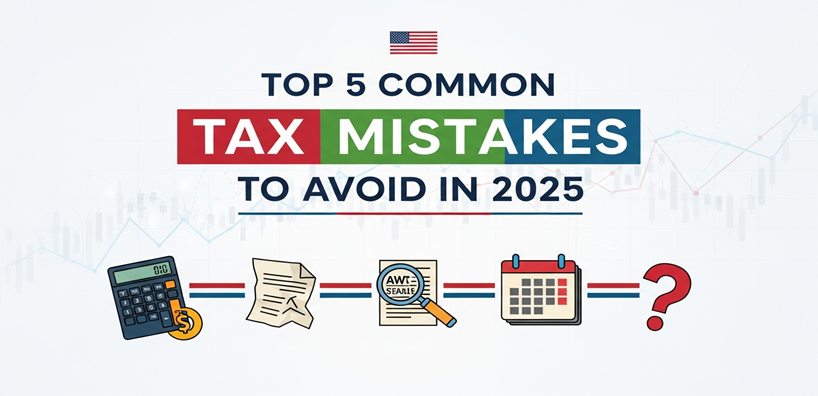Charitable giving is one of the most fulfilling ways to make a difference. For U.S. taxpayers, it also comes with the added benefit of reducing taxable income. But many donors unintentionally miss out on these tax advantages by making avoidable mistakes. At Narayan Sewa Sansthan USA, your donations help provide artificial limbs and corrective surgeries for differently abled children and people—and when done correctly, they also maximize your tax savings.
Here are five common mistakes to watch out for:
1. Not Verifying the Charity’s Eligibility
- Only donations to IRS-recognized 501(c)(3) organizations qualify for tax deductions.
- If you donate to a group that isn’t registered, your contribution won’t be deductible.
- Narayan Sewa Sansthan is a recognized nonprofit, so your donations are eligible.
Tip: Always check the IRS “Tax Exempt Organization Search” before donating.
2. Forgetting Proper Documentation
- The IRS requires receipts or written acknowledgments for donations.
- For cash donations, bank records or official receipts are essential.
- For non-cash donations, you may need appraisals if the value is high.
Tip: When donating online to Narayan Sewa Sansthan, save the confirmation email—it’s your proof for tax filing.
3. Ignoring Deduction Limits
- Cash donations are generally limited to 60% of your Adjusted Gross Income (AGI).
- Non-cash contributions may have lower limits.
- Donating beyond these limits won’t increase your deduction.
Tip: Plan your giving strategically—large donations may be spread across years to maximize benefits.
4. Not Itemizing Deductions
- Many taxpayers take the standard deduction and forget that charitable donations only reduce taxes if you itemize.
- If your total deductible expenses don’t exceed the standard deduction, you won’t benefit from listing donations.
Tip: Consider “bundling” donations into one tax year to surpass the standard deduction threshold.
5. Overlooking Timing of Donations
- Donations must be made before December 31 of the tax year to count.
- Waiting until January means the deduction applies to the next year.
Tip: End-of-year giving to Narayan Sewa Sansthan ensures both immediate impact for differently abled individuals and timely tax savings.
Give Smart, Give with Heart
Avoiding these five mistakes ensures your generosity benefits both the people you support and your financial well-being. At Narayan Sewa Sansthan, your donations fund life-changing initiatives—artificial limbs, corrective surgeries, and rehabilitation programs—helping differently abled children and adults live with dignity and independence.
By donating wisely, you save on taxes while giving someone the priceless gift of mobility and hope.
Frequently Asked Questions (FAQs)
1. Are donations to Narayan Sewa Sansthan tax-deductible in the U.S.?
Yes, donations made to Narayan Sewa Sansthan are eligible for tax deductions as it is a recognized nonprofit organization. Always retain your donation receipt for IRS documentation.
2. What kind of donations qualify for tax benefits?
Both cash donations (via check, card, or online transfer) and non-cash contributions (such as property or equipment) may qualify. However, rules differ, so consult IRS guidelines for specifics.
3. Do I need to itemize deductions to claim tax benefits from donations?
Yes. Charitable contributions only reduce your taxable income if you itemize deductions instead of taking the standard deduction. Bundling donations into one year can help surpass the threshold.
4. Is there a limit to how much I can deduct for charitable donations?
Generally, cash donations are limited to 60% of your Adjusted Gross Income (AGI). Non-cash donations may have lower limits. Planning ahead ensures you maximize your benefits.
5. What documentation is required to claim a deduction?
You must keep receipts, bank records, or written acknowledgments from the charity. For non-cash donations above certain values, appraisals may be required.
6. How does my donation help Narayan Sewa Sansthan’s mission?
Your contribution directly funds artificial limbs, corrective surgeries, and rehabilitation programs for differently abled children and adults, giving them independence and dignity.







